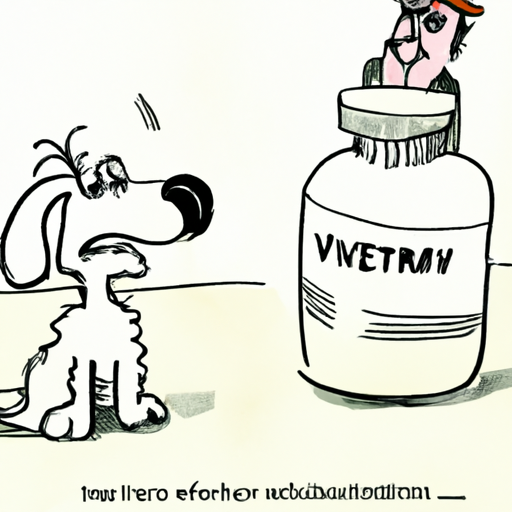Introduction
Hello there, caregiver! I know the health of your furry friend is of utmost importance to you. So, when you discover that your dog has worms, it’s only natural to feel a bit distressed. Fear not, for this guide is here to help you navigate through this common canine problem. Let’s dive right in and explore how best to treat worms in dogs.
What are Worms in Dogs?
First things first, let’s understand what we’re dealing with. Worms in dogs are internal parasites that can affect your pet’s overall health. They come in several types:
- Roundworms: These are the most common worms in dogs. They resemble spaghetti, and puppies often contract them from their mothers.
- Hookworms: These are small, thin worms that hook onto the intestine wall and suck blood.
- Whipworms: These are whip-shaped worms that live in the cecum, a part of the dog’s intestine.
- Tapeworms: These are flat, segmented worms that dogs often get from fleas.
Recognizing the Symptoms
As a caregiver, understanding the symptoms of worms in dogs will enable you to take timely action. Here are some signs to look out for:
- Diarrhea or vomiting
- Weight loss
- Pot-bellied appearance, especially in puppies
- Dull coat
- Visible worms in feces or vomit
Please note: While these are common symptoms, it’s important to consult a vet for an accurate diagnosis.
Treatment Options
You’ve identified the problem, now let’s look at the solutions. There are several ways to treat worms in dogs:
- Medication: Over-the-counter deworming medications are available. However, prescription drugs from your vet are often more effective.
- Preventive Measures: Regularly treating your dog with heartworm preventives can also control other types of worms.
- Good Hygiene: Cleaning up after your dog promptly and regularly can help prevent the spread of worm eggs.
| Treatment Option | Pros | Cons |
|---|---|---|
| Medication | Effective, Fast-acting | May have side effects |
| Preventive Measures | Controls various types of worms | Regular administration required |
| Good Hygiene | Prevents spread of worm eggs | Time-consuming |
Ensuring Your Dog’s Long-Term Health
Post-treatment, it’s essential to ensure your dog’s long-term health and prevent re-infection.
- Regular Vet Visits: Schedule regular vet check-ups, typically every 3 to 6 months.
- Maintain Hygiene: Keep your dog’s living area clean and promptly pick up feces.
- Regular Deworming: Use preventive medication as recommended by your vet.
Frequently Asked Questions
Q: Can humans get worms from dogs?
A: Yes, it’s possible but can be prevented with good hygiene.
Q: How often should I deworm my dog?
A: Consult your vet. Most recommend deworming every 3 to 6 months.
Q: Are worms in dogs life-threatening?
A: If left untreated, certain types of worms can be life-threatening.
So there you have it, a comprehensive guide to treating worms in dogs. Remember, your role as a caregiver is vital to your pet’s health. Regular vet visits, a keen eye for symptoms, and prompt treatment can ensure your furry friend stays happy and healthy.



